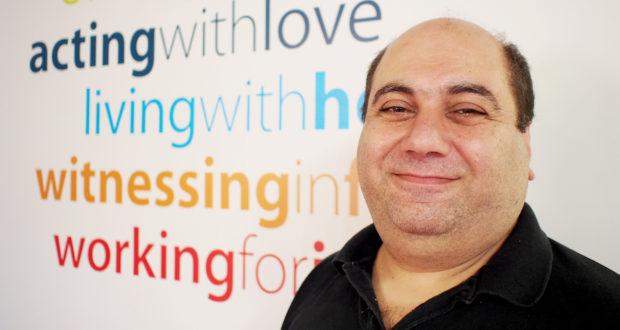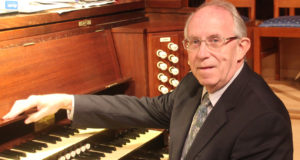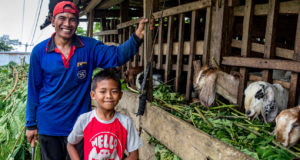Dianne Jensen talks to Levon Kardashian, the new Multicultural Project Officer for the Presbytery of South Moreton.
Levon Kardashian understands the power of cultural roots and family ties.
The new Multicultural Project Officer for the Presbytery of South Moreton is an Armenian Christian born in Lebanon to an Armenian father from Lebanon and an Armenian mother from Syria, and the grandson of a survivor of the Armenian genocide more than a hundred years ago by the
Ottoman Empire.
“We have lived with all the stories that came with him and all the other people who came to Lebanon and Syria; they have told their stories to their children and they tell them to their children—it has become part of who we are,” says Levon, who came to Sydney in 2009.
Already a theological graduate, Levon joined a congregation of his home church, the Union of Armenian Evangelical Churches in the Near East.
Formerly a member of the Congregational Union of Australia, the congregation became part of the new Uniting Church in 1977. Levon hopes to candidate as Minister of the Word in the Queensland Synod.
His journey into multicultural ministry began when he was asked to join the NSW/ACT Synod multicultural ministry reference group. While en route to a conference, Levon found himself sharing a long bus ride with Christians from different cultural groups.
“It was the first time I’d seen people from different cultures come together … over those five hours I became good friends and I realised there are some similarities but also some differences in the way we do things. Once we got there and I realised that there is a lot more diversity in the church, it got me excited to learn more,” says Levon.
Levon prefers to talk about cross-cultural rather than multicultural ministry—how diverse congregations can relate to each other as sisters and brothers without losing their identity.
He challenges “Anglo” congregations who see themselves as the monocultural mainstream.
“Look at your members—some are from Scotland, Ireland, Germany, Poland, other European countries—why do you think you are all the same? Your congregations are truly multicultural—while the congregations such as the Tongans and Koreans are monocultural.
“It’s the Anglo congregations who are really multicultural so they need to start understanding themselves—they are the biggest part of the multicultural church and the rest are just trying to get into the same space.”
Levon hopes to build relationships across the whole Synod, and his hospitality starts at home.
“I spent a lot of time looking for a house that is suitable, so whenever people want they can always come. Call me first so I can prepare some food—come and have some Lebanese food or any other kind of food. I love to cook.”
 JourneyOnline
JourneyOnline







